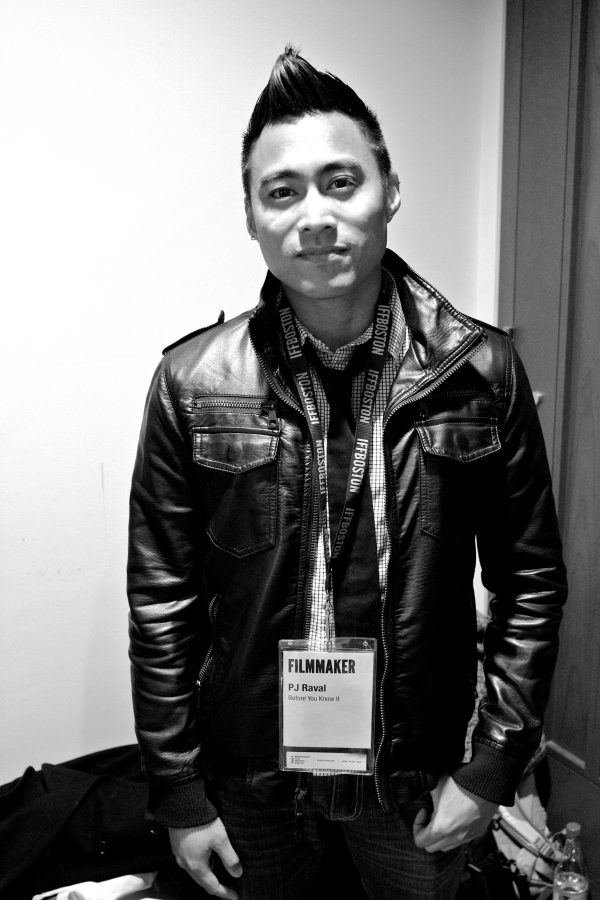Five minutes into the movie, I’m watching one of your characters log into his account on alt.com, a website devoted to arranging encounters between individuals interested in kinky sex. Why include this?
One of the things that I wanted to do was to demystify the senior population. I think society in general likes to de-sexualize seniors. For me, one of the most interesting things, if you say you’re an LGBT senior, you’re allowing — well, you’re not really allowing — but when you say you’re a senior, society will de-sexualize you. But when you say you’re an LGBT senior, you’re actually defining yourself by your sexual identity.
When I interviewed a lot of the seniors, and I asked “What are the things you think would surprise young people?” they would say, “Oh, that we’re still sexually active,” or “We still have a sex drive, or long for some kind of sexual encounter.” Things like that. That was something I definitely wanted to address in the film.
I think a lot of younger people don’t think about — if they’re sexually active now, they’ll be sexually active later too.
How do you address the reaction of young people who are grossed out by the idea of old people having sex?
I think part of that is watching the film and recognizing that these characters long for very much the same things that younger people do in terms of a relationship, or a sexual encounter, or in finding some kind of inclusion in their communities. These are all things that don’t change, in my opinion. They’re the same if you’re younger; they’re the same if you’re older.
The difference is the way that you’re treated during those adventures when you’re older. Part of me is just wanting viewers to just witness that.
Your Kickstarter for the movie invited audiences to help fund a movie about “LGBT” seniors, but in the end, it seems that you chose to make a movie mostly about gay men. Why?
I wanted to go out into the community, meet people, and see who piqued my interest for whatever reason, and start following them. I think for me, for documentaries, that’s the best way to do it, because you don’t want to force anything that’s not actually there.
For me, personally, that was better. As a filmmaker, it’s impossible to represent an entire community, and I don’t want my film to come off like it is trying to represent the whole community — it’s trying to represent three people within that community.
Even saying “LGBT community,” that’s such a diverse group! Which is really wonderful in a lot of ways, but it’s also very complicated because my experience as a queer Asian-American filmmaker is not going to be the same as someone else’s.
For me there’s something very powerful about being three gay men growing up in different cities — three very different experiences, different statuses in terms of partnership, different stages in terms of when and how they came out — and I think there’s something even more powerful about having them be so similar to each other in age and gender, and as gay men.
I feel like if one of the characters was trans, and one of the characters was a lesbian, I’m opening the door up to “Why didn’t I also have…?” Then I feel like it becomes a much more incomplete story. Then I feel like it’s trying to accomplish something that I’m not really interested in doing as a filmmaker.
For me, it’s about finding the right story, and about how those three stories weave together.
Younger gay people in the U.S. are less likely to have spent time in the closet, to have been rejected by their families, or to have had all their friends die of AIDS. What lessons can younger members of the LGBT community take from this movie and apply in their own communities?
We’re always pushing forward, and there’s still a lot more territory to move through.
As a society, are we open enough to really be supportive of individuals coming out of the closet? I don’t know! Certainly moreso than before, but obviously you have someone like Dennis who’s still struggling with that. So no, we haven’t hit some kind of peak where everybody is welcome and free to come out. That’s clearly not the case.
Just because it isn’t happening in the younger generation doesn’t mean that it isn’t happening in a generation. We shouldn’t take for granted the idea that society has the ability to let everybody be entirely comfortable. That’s still not the case. Part of me wants to make the younger generation aware of that, because I don’t want them to come away and think, “Well, everything’s okay, because I can see a gay teenager on television.”
How do young people, LGBT or not, help LGBT seniors?
I think there’s the obvious choices — organizations like SAGE.
Just start at the simple level of acknowledging. One of the things that Dennis told us that unfortunately didn’t end up in the film — and I think we don’t say it explicitly because it’s inherent in watching the film — that younger generations are afraid of getting older, and they don’t want to look at older people because it’s a reminder. It’s a reminder of what they’re going to become, and it’s a reminder of how they might possibly be mistreated.
I think the first step is just recognizing that, that we aren’t treating seniors with the respect that they deserve, that we’re treating them like they’re children and not fully capable, aware adult people.





















































